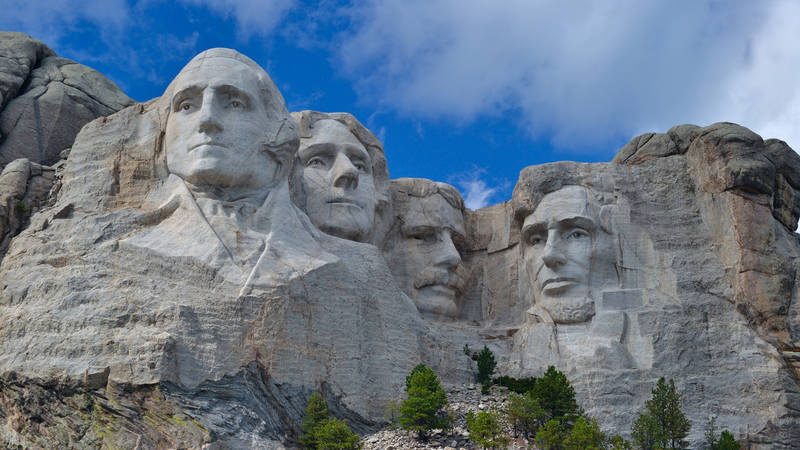National parks are open, thanks to late-night actions by Congress Sept. 30. But parks could face the same situation in mid-November that they just narrowly avoided if long-term funding issues aren’t resolved soon.
NPCA, park staff, concessioners, gateway communities and others are breathing a sigh of relief, knowing the National Park System remains open across the country after Congress reached a short-term funding extension Saturday night — just three hours before its deadline. The agreement will keep the federal government open at current funding levels until Nov. 18.
But the fight’s not over. Imagine a park system where visitors don’t see park rangers past the entrance gate; where they might find the visitor center closed and trails deteriorating for lack of care; and where educational programs would be virtually nonexistent and wildlife research would be halted.
National parks are spaces of patriotic pride, and they drive our economy. Will we let Congress cut funding to the Statue of Liberty and Mount Rushmore?

Mount Rushmore National Monument.
Photo © Dchintz/Dreamstime.Or shortchange the places that rural communities depend on for their livelihoods? Can we afford to let roads crumble at Yellowstone or Acadia?
That is what our park system could look like if the U.S. House of Representatives succeeds in passing a bill that slashes park budgets.
The House Interior, Environment and Related Agencies bill includes deep, historic cuts of 12.5% to the Park Service, totaling $433 million.
While last Saturday’s short-term decision, called a continuing resolution, averted an immediate government shutdown that would have begun Oct. 1 and furloughed federal workers (including thousands of national park staff), a longer-term spending agreement still must be made. Congress has given itself an extension to work out what the final funding amounts will be — essentially kicking the can down the road.
In the next few weeks, we expect the U.S. House of Representatives to consider a number of funding bills, including the House Interior, Environment and Related Agencies bill, which provides appropriations for the National Park Service. The bill includes deep, historic cuts of 12.5% to the Park Service, totaling $433 million. This unrealistic and damaging proposal, which is expected to be taken up on the House floor soon, should be a nonstarter for anyone who cares about our national parks and public lands.
This proposed reduction could mean as many as 1,000 fewer staff to ensure visitor experience and safety and fewer resources to protect our beloved natural and culturally historic sites. The bill also does not honor the intent of the bipartisan budget agreement passed earlier this year, which already capped funding for agencies that protect our public lands, air, water and climate.
Th bill is full of objectionable proposals far beyond the damage it would cause to the operation of our parks. It deeply cuts Park Service historic preservation funding, which is critical to protecting our nation’s history.

What a Federal Government Shutdown Means for National Parks
If Congress fails to pass a continuing resolution to extend federal funding by midnight tonight, the federal government will shut down.
See more ›It slashes funding for the Environmental Protection Agency’s clean air and water programs — undoing recent investments to help our communities and park landscapes better face climate change and natural disasters.
The bill also would roll back protections against mining and oil and gas development at Voyageurs National Park and Grand Staircase-Escalante National Monument. It would reverse policies that ensure communities have more say in national park and public lands decisions.
And it would prohibit funding for North Cascades Grizzly Bear Ecosystem Restoration, which has overwhelming public support, and weaken protections for the Yellowstone Grizzly population that would safeguard one of our country’s most iconic wild creatures.
There’s a broader funding crisis facing parks, however. This current budget impasse is only one part of it.
National parks were already struggling before this most recent government shutdown threat, operating with fewer staff and smaller budgets to sustain soaring park visitation and the worsening effects of climate change. Between 2012 and 2022, national parks staffing eroded by 13% while visitation grew by 10%. Through a much-needed budget increase last year, parks and supporting offices were able to hire 500 additional staff, but they still employ 2,600 fewer people than they did in 2011.
Our parks also suffer from more than $22 billion in repair needs due to chronic congressional underfunding. Critical repair projects at parks across the country such as crumbling roads, worn-out trails, failing water and sewer systems, and other maintenance issues have been put on the backburner for decades, and now much of our parks’ infrastructure has reached a breaking point.
The disastrous proposed spending bill is expected to be taken up on the House floor within the next few weeks. NPCA is urging lawmakers to oppose it and come to an agreement on a funding bill that invests more in our national parks, not less.
Between 2012 and 2022, national parks staffing eroded by 13% while visitation grew by 10%.
Until congressional funding disagreements are resolved, we face another potential shutdown right before Thanksgiving. Yet again, thousands of national park staff will be faced with the possibility of being furloughed without pay.
National parks would have to prepare to close their gates, impacting millions of people who have made travel plans months in advance. And gateway communities could lose as much as tens of millions of dollars in visitor spending per day during a shutdown.
Congress must come together and pass a spending plan that prioritizes our communities and our national parks. The current proposal is not the answer. Our elected officials can and must do better. The American people and our national parks are counting on it.
Stay On Top of News
Our email newsletter shares the latest on parks.
About the author
-
 John Garder Senior Director of Budget & Appropriations, Government Affairs
John Garder Senior Director of Budget & Appropriations, Government AffairsJohn Garder is Senior Director of Budget & Appropriations at NPCA. He is a budget analyst and researcher who advocates for more adequate funding for national parks to diverse audiences, including Congress, the White House, and the Department of the Interior.
-
General
-
Issues


